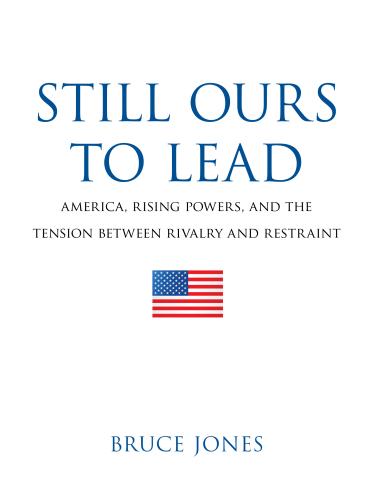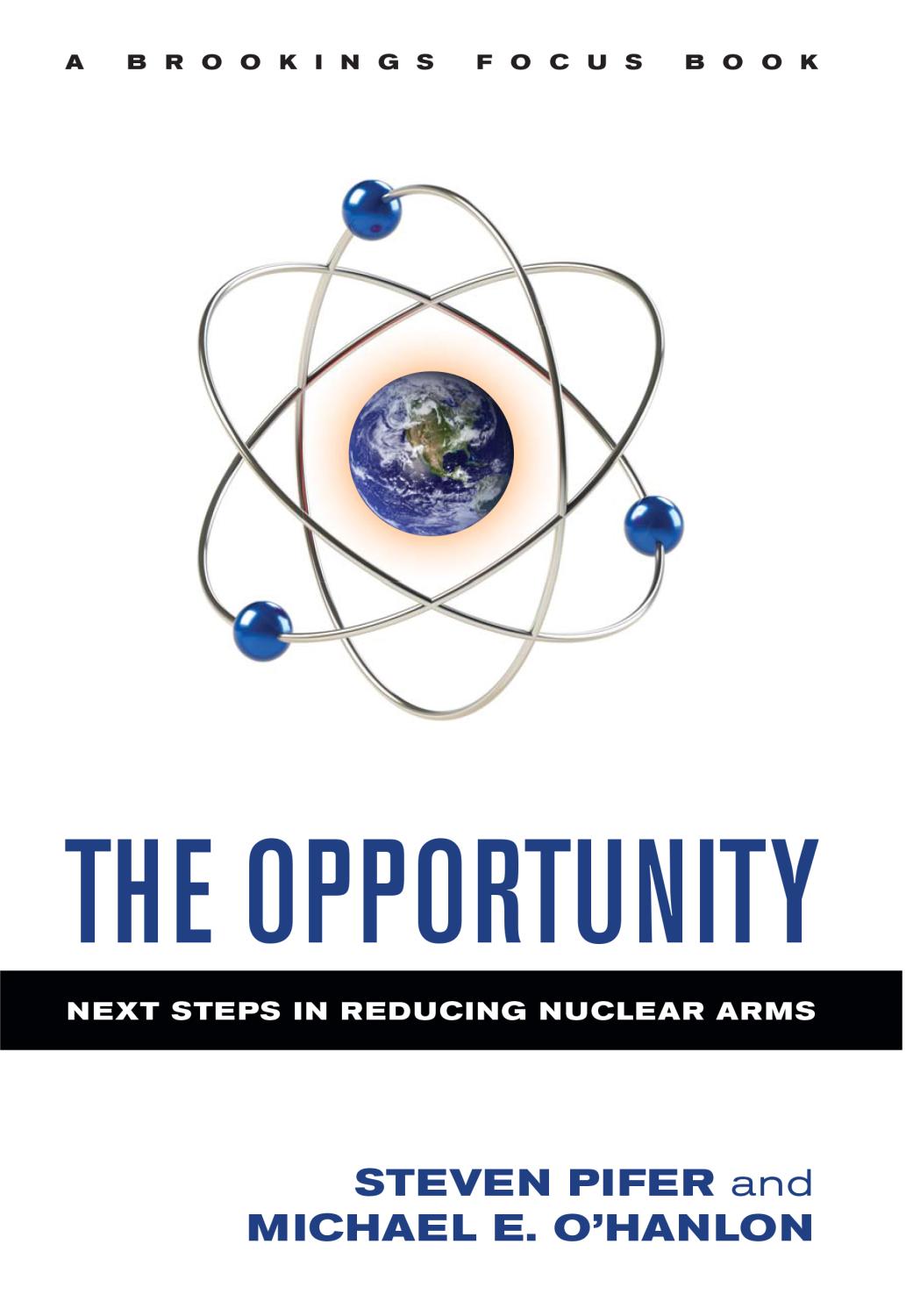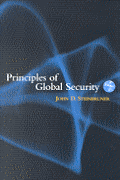


Book
For some observers, nuclear arms control is either a relic of the cold war, or a utopian dream about a denuclearized planet decades in the future. But, as Brookings scholars...
A Brookings FOCUS book
Can there be another major U.S.-Russia arms treaty? Can all the tactical and surplus warheads that have so far escaped controls be brought into such a framework? Can a modus vivendi be reached between the two states on missile defense? And what of multilateral accords on nuclear testing and production of fissile materials for nuclear weapons?
For some observers, nuclear arms control is a dusty relic of the Cold War; for others, a futuristic utopian dream about a denuclearized world. As Steven Pifer and Michael O’Hanlon make clearly evident in The Opportunity, however, the topic remains closely tied to some of the most urgent and important security challenges of the day and thus demands close attention and renewed focus.
Watch both authors discuss arms control, the priority this issue should take in U.S. national security, and the opportunity to advance American security and prevent the threat of proliferation.
Classic U.S.-Russia arms control, revived by the Obama administration in 2009, contributed usefully to the so-called Russia reset policy, which paid dividends in broader cooperation on matters such as Iran sanctions policy and logistical supply of NATO troops in Afghanistan. More to the point, it shored up American and Russian nuclear nonproliferation credentials as Washington sought to persuade other countries to eschew nuclear weapons, to sanction states pursuing the bomb illicitly, and to improve security measures on civilian and scientific nuclear activities worldwide.
But as Pifer and O’Hanlon outline in The Opportunity, there is more to do, and there is a nuclear arms control opportunity in 2013 and beyond. Pursuing one more U.S.-Russia bilateral treaty can further reduce long-range or strategic nuclear systems to perhaps 1,000 deployed warheads on each side. Even more significantly it can allow nonstrategic warheads finally to be captured by arms control. It can also save money if the American military does not need to maintain its nuclear arsenal at the unnecessarily high levels allowed under the New START Treaty. U.S.-Russian bilateral arms control, moreover, can spur and be coupled with multilateral efforts to involve the smaller nuclear powers, which might agree not to increase the size of their arsenals in the future, and to cut off the production of fissile material.
Such steps can also provide more information that will be relevant down the road when future policymakers decide when and if to pursue seriously a world free of nuclear weapons—a worthy goal in many ways, but one whose feasibility we cannot yet truly assess. The Opportunity provides the essential guide to understanding these complex and important issues as well as a series of practical and feasible policy recommendations to make America more secure.
Praise for The Opportunity:
“The Opportunity offers a comprehensive, concise, and thoughtful explanation of the nuclear arms control challenges facing the next president. While some will disagree with Pifer and O’Hanlon’s specific recommendations, no one can fault the clarity and fairness of their analysis. This book will be a valuable resource for policymakers, practitioners, and academics of all political persuasions.”—Ambassador Linton Brooks, chief U.S. negotiator, 1991 START I Treaty
“Notwithstanding my disagreement with many of its recommendations, I found The Opportunity indispensable. It provides a sober, fair, and balanced discussion of contentious and complex issues like missile defense, negotiations with Russia, and the future of the nation’s nuclear enterprise. This accessible and concise book lays out a prospective agenda that both supporters and critics of Global Zero will be forced to engage.”—Ambassador Eric Edelman, U.S. under secretary of defense for policy (2005-09)
“The Opportunity is a must-read. It offers superb analysis and real recommendations on reductions of the nuclear stockpile, missile defense cooperation with Russia, the test ban treaty and stockpile stewardship, and other key issues. I enthusiastically recommend this book to all and especially to my former congressional colleagues on the Hill, at the State Department, and in the White House.”—Ellen Tauscher, U.S. under secretary of state for arms control and international security (2009–12), former member of Congress
Related Books

Bruce Jones
March 17, 2014

John D. Steinbruner
April 1, 2000

Michael E. O’Hanlon, Hassina Sherjan
January 27, 2010
Authors

Steven Pifer is a senior fellow in Foreign Policy studies and the Center on the United States and Europe at the Brookings Institution, where he directs the Brookings Arms Control Initiative. His long diplomatic career included considerable work on nuclear arms reductions and three years as U.S. ambassador to Ukraine.
Michael E. O'Hanlon is a senior fellow with the 21st Century Defense Initiative and director of research for Foreign Policy at Brookings, where he holds the Sydney Stein Jr. Chair in International Security. His many books include Bending History: The Foreign Policy of Barack Obama, with Martin Indyk and Kenneth Lieberthal (Brookings, 2012).